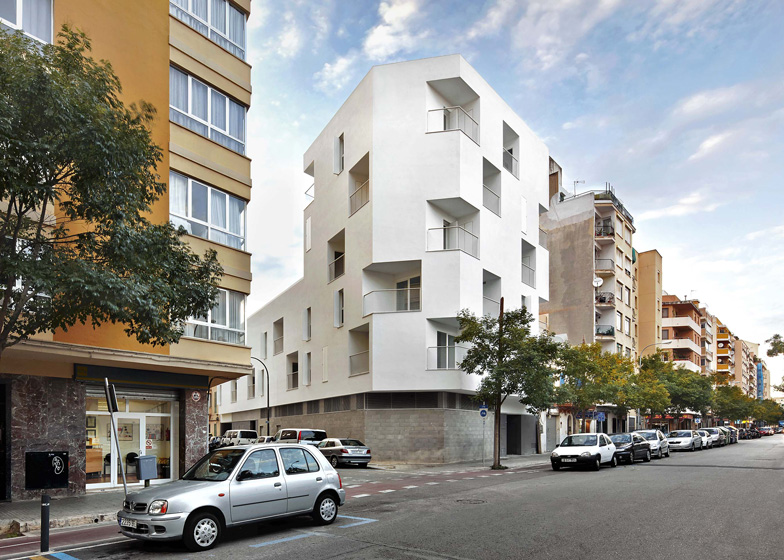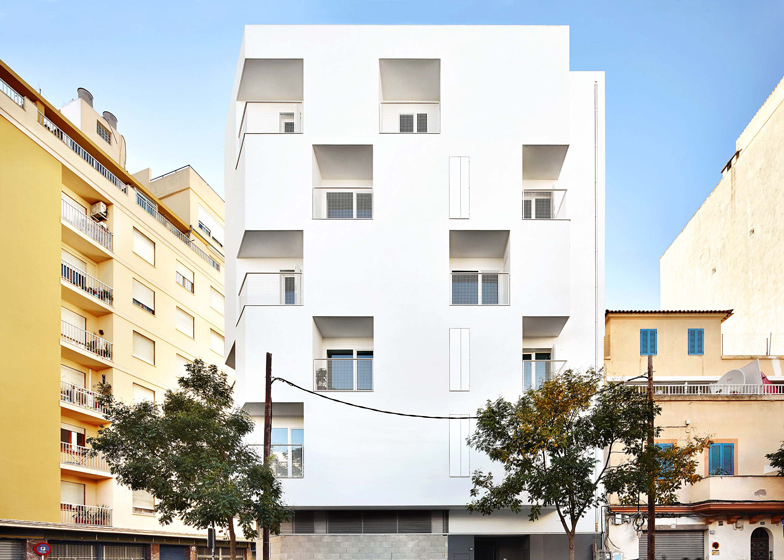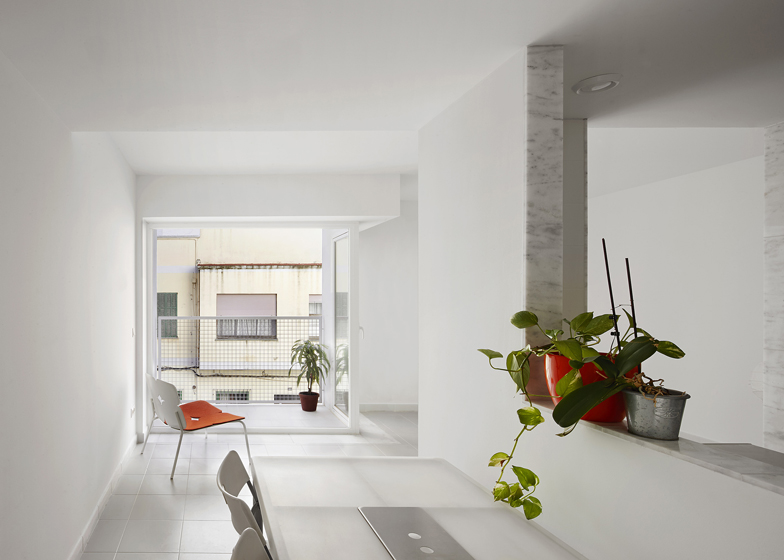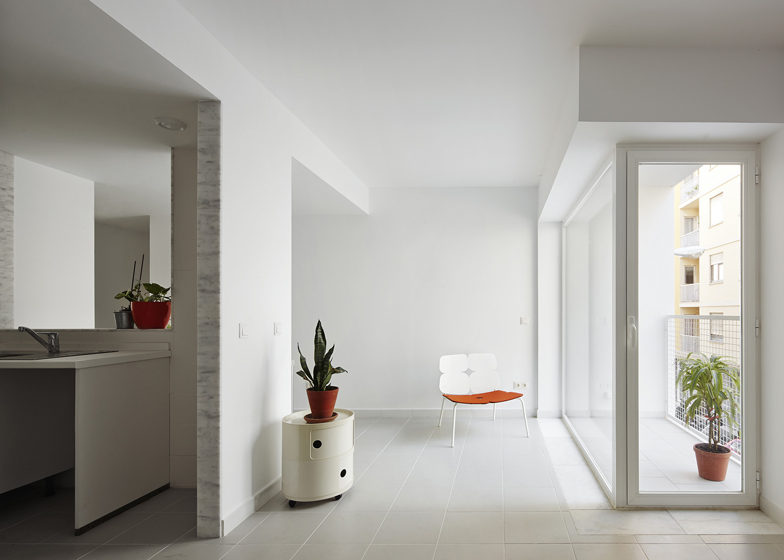Compact balconies puncture the solid white facade of this social housing block in Mallorca by Spanish architects RipollTizon (+ slideshow).
RipollTizon designed the building for low income families in Palma de Mallorca's Pere Garau neighbourhood. It contains 18 apartments, ranging between 35 and 68 square metres, and includes a mixture of one, two and three bedroom apartments.
The corner block forms a six-storey tower, but drops down to three storeys on one side to meet the height of surrounding buildings.
"The result is a solid column with excavated voids where the openings are presented as scenes stacked upon each other," said architect Pablo Garcia.
The building is divided into two different halves - separating apartments for rent from those for sale. Each side have its own entrance, with separate elevators and staircases with perforated brickwork screens.
The apartments have simple interiors, with white walls and tiled floors, plus each one has its own private balcony.
"The excavated terraces are the intermediate elements that relate interior and exterior while offering a private scenery that is built-in the facade of each dwelling," added Garcia.
The building replaces a former block of courtyard houses. It sits on a base of grey blockwork and gently projects out towards the street.
Other residential projects by RipollTizon include another social housing project with identical doors and windows and an extension to a traditional family house in Mallorca. See more RipollTizon projects »
Other social housing projects on Dezeen include an apartment with balconies shapes like greenhouses, tower blocks referencing the 1960s and an apartment block clad in green plastic panels.
See more social housing »
See more Spanish architecture and design »
Photography is by José Hevia.
Here's a project description from the architects:
Social Housing in Palma
The project is located in 'Pere Garau' neighbourhood. The area was formerly characterised by blocks of single family houses with inner courtyards that followed a typical grid plan. Once the district became central in the city, amendments to the urban planning increased the building volumes significantly and changed the typology to collective housing.
The project takes part of this transformation by redefining a corner plot, resulting from the addition of two former houses, into a new public housing building. The building is conceived according to the new volume specified by the urban planning and playing within its established rules: building depth and cantilevers to the street (of which half of its total permitted area can be enclosed by walls).
The proposal takes advantage of this situation to generate the mechanisms needed to link the housing with their immediate surroundings through controlled openings 'excavated' in the building mass. The result is a solid volume with 'excavated' voids, where the openings are presented as scenes stacked upon each other.
A small universe of stories organised under no apparent order, and whose arrangement emerges from the dialogue that the building establishes with its urban context. The different rooms of the houses are arranged along a central stripe containing the service areas. The excavated terraces are the intermediate elements that relate interior and exterior while offering a private scenery that is built-in the facade of each dwelling.
Client: Institut Balear de l'Habitatge - IBAVI (Balearic Public Housing Institute)
Location: Capità Vila St. - Can Curt St. Palma de Mallorca
Architects: Pep Ripoll - Juan Miguel Tizón
Project area:2.816,55 metres squared
Budget: 1.156.320,90 EUR
Start of design: 2008
Year of completion: 2012
Collaborators: Pablo García (architect) and Luis Sánchez (architect)
Quantity surveyor: Toni Arqué
Structural engineer: Jorge Martin
Building services: David Mulet
Contractors: Contratas y Obras S.A.




